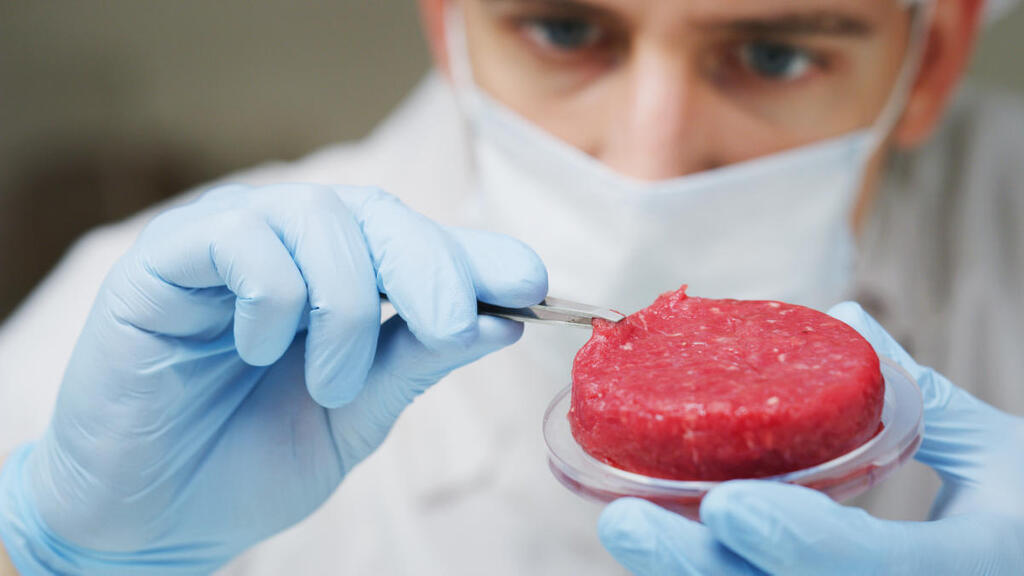Getting your Trinity Audio player ready...
The high-tech crisis has not spared Israel's renowned cultured meat company, Aleph Farms, as evidenced by last week's summoning of 30% of its employees for dismissal hearings.
However, Calcalist has learned that the crisis is more profound. This marks the third round of layoffs within the past year. The previous round occurred at a rather peculiar time—near the Ministry of Health's announcement granting pre-marketing approval for the company's products, a first in Israel.
Before the layoffs began, the company employed approximately 140 individuals. Currently, 30 employees have been laid off. The layoffs started in April 2023 when several individual employees left the company (about 10). Subsequently, a second round of layoffs took place in January, coinciding with the company's announcement of the first regulatory approval in Israel for cultured meat, resulting in about 30 more dismissals. This totals 70 individuals, approximately half of the workforce, being laid off since April of the previous year.
Established in 2017, Aleph Farms has encountered challenges for over a year, primarily due to the political and security situation in Israel, which has impeded the company's prospects for success. Despite raising $140 million to date, with a significant portion secured in 2021 ($105 million), the company's plans for another large funding round in the past year to meet milestones and investor expectations have been thwarted by harsh realities.
Investor interest in the Israeli scene has waned significantly, with investments in alternative protein in Israel dropping by approximately 80% in 2023 (compared to around 45% globally), with 2024 indicating even more formidable challenges. Moreover, doubts are emerging among global investors regarding the sector in which Aleph Farms operates.
Insiders within Israel's foodtech market emphasize that the prevailing challenges compound the difficulties faced by all companies operating within Israel. However, they suggest that questionable decision-making at Aleph Farms may have exacerbated the current crisis. This includes overly rapid growth following significant recruitment in 2021, prioritizing tasks that do not align with the company's overarching objectives, and encountering difficulties in transitioning to commercial-scale production of raw materials, which are inherently challenging to cultivate, mirroring issues faced by leading global companies in the field.
A pioneering company
Aleph Farms is recognized as a pioneering force in Israel and a global leader in its field. It has garnered investments from major entities such as the Abu Dhabi Wealth Fund, Strauss, and prominent global investment funds. Amidst a year where several promising cultured meat companies have faced significant hurdles, it raises questions about the fate of companies once hailed as the future of food technology, promising consumers lab-grown meat with reduced environmental impact.
Alongside Aleph Farms, two other cultured meat companies have secured permission to market their products globally. The first, American company Good Meat, obtained marketing approval in Singapore in 2020. However, despite initial marketing efforts, including limited availability in restaurants, challenges arose, resulting in the removal of products. Similarly, despite approval for the sale of cultured chicken products in the U.S. in June 2023, these products faced difficulties gaining traction in luxury restaurants.
The cultured meat industry continues to grapple with research and development challenges, compounded by technological obstacles. These include enhancing the speed and efficiency of cell differentiation, reducing the cost of raw materials essential for cell culture growth, and addressing the issue of highly processed products with limited meat content, primarily comprised of plant proteins.
A product with minimal meat content
The cultured meat industry's struggle to progress beyond the laboratory is evident in the minimal quantities of raw materials produced. Good Meat recently announced its product availability in a Singaporean supermarket, revealing that it contains only 3% cultured chicken, supplemented with plant proteins. This raises questions about the actual contribution of laboratory-grown cells to the final industrialized product offered to consumers.
Investors and industry insiders assert that the hype surrounding cultured meat does not align with its current capabilities. Despite its significant potential, there are notable gaps between marketing promises and tangible products. The sentiment suggests a need for more realistic expectations that match technological advancements.
As industry challenges became more apparent last year, investors like Ryan Bethencourt predicted a high failure rate for companies in the field. He emphasized the necessity for technological expansion and warned against unrealistic valuation expectations. Laura Turner echoed similar sentiments, describing cellulosic agriculture as overvalued and highlighting the time required to leverage technology effectively.
While success stories within the cultured meat industry are rare, it is premature to dismiss a field still in its nascent stage. However, recent setbacks underscore the importance of sustained investment in research and development. Governments, responsible for addressing climate change and environmental degradation, play a crucial role in supporting innovative solutions like cultured meat. As investor interest wanes amidst expectations of immediate returns, the path to mainstream adoption of lab-grown meat appears prolonged.



